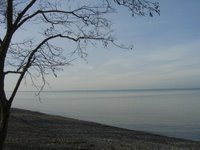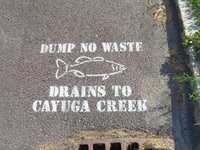Good News: Great Lakes Shooting Range Nixed!!
 The U.S. Coast Guard said Monday it was withdrawing plans to periodically close 2,500 square miles of the Great Lakes for live machine-gun firing exercises.The plan had been criticized by several U.S. and Canadian mayors, business leaders and environmentalists who said it could be unsafe and disruptive. Environmentalists also said they worried about the consequences of lead ammunition being deposited in the Great Lakes.
The U.S. Coast Guard said Monday it was withdrawing plans to periodically close 2,500 square miles of the Great Lakes for live machine-gun firing exercises.The plan had been criticized by several U.S. and Canadian mayors, business leaders and environmentalists who said it could be unsafe and disruptive. Environmentalists also said they worried about the consequences of lead ammunition being deposited in the Great Lakes.During several public hearings in the region, Coast Guard officials said the training exercises were vital to its homeland security and law enforcement missions. The plan called for crews to shoot at floating targets with M240-B automatic rifles aboard cutters, rescue boats and other vessels. Each of the 34 "safety zones" on lakes Superior, Michigan, Huron, Erie and Ontario would have been closed to private vessels for four-hour spans about four to eight times a year. Exercises would have taken place in each zone two or three times a year.
Raising safety concerns, some of the zones overlapped established vessel routes, including those of Michigan-to-Wisconsin car ferries and the Beaver Island ferries originating from Charlevoix on Lake Michigan. Hugh McDiarmid Jr., spokesman for the Michigan Environmental Council, said the group was worried about 7,000 pounds of lead that would be deposited annually into the lakes. "There really was no examination of where this lead would fall and what it would do," he said.
Rear Adm. John E. Crowley Jr., commander of the Ninth Coast Guard District in Cleveland, said he would "take the time to get this right" and would not conduct live-fire training in the lakes to meet non-emergency training requirements. Crowley said he planned to reconsider public concerns and was committed to finding "environmentally friendly alternatives to the lead ammunition we currently use."
(excerpts from an article by Ken Thomas/AP Washington)

